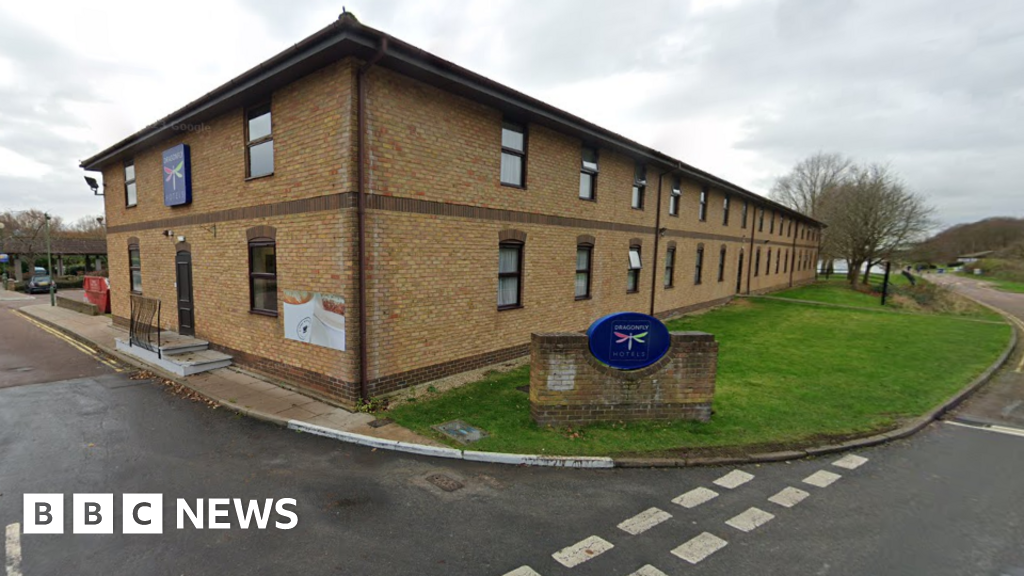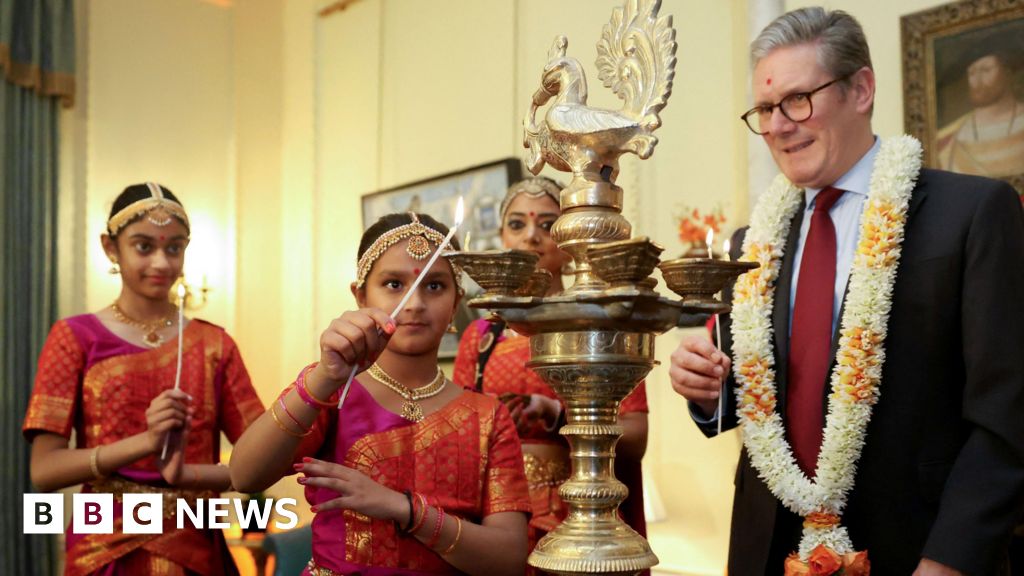ARTICLE AD BOX
By Phil Kemp & Lucy Manning
BBC News
Image source, Vitalii Tatarynov
Image caption,Vitalii Tatarynov is hoping to bring his mother and sister back to the UK
Vitalii Tatarynov took a train from London's King's Cross at the weekend. He was embarking on a rescue mission.
His sister, Anna, and mother, Viktoria, had just spent 36 hours on a treacherous journey from the central Ukrainian city of Kryvyi Rih - and he met them in Poland, hoping to bring them back to the UK.
Home Secretary Priti Patel is visiting Poland to announce that British nationals and anyone settled in the UK can bring immediate family, parents, grandparents and siblings to safety.
But the scheme she is launching doesn't help Vitalii, 33, because the 18 months he has spent living and working in London isn't long enough.
Ukrainians with family in the UK have told the BBC the government should make more effort to provide refuge for those fleeing the country.
Details of a sponsorship scheme that may help have yet to be announced, but Labour is calling for emergency visas to allow Ukrainians to come to the UK for up to a year.
Image source, Vitalii Tatarynov
Image caption,Anna and Viktoria travelled through military checkpoints and huge, snaking traffic jams to cross the border
"There are requirements from the government that I need to have the settled status to be allowed to bring my family to the UK so I can take care of them," he tells the BBC over a video call.
"It would be really nice if they can live next to me and I can help them on an everyday basis, rather than sitting and wondering if they are OK."
The Russian invasion of Ukraine means that Vitalii's sister Anna, 18, cannot finish high school. Instead of searching for a place at university, as she had hoped, she is a refugee.
"It would be great to come to the UK, because this country has many more possibilities to have a better life," she says.
On her trip to the Polish border town of Medyka, the home secretary will meet Ukrainians applying to go to the UK under the scheme.
The Home Office says normal requirements for salary or language tests are being waived, but essential security checks will still take place.
Ahead of the visit, Ms Patel said: "The British government will do everything it can to support the Ukrainian people at this critical moment as they fight for freedom.
"The United Kingdom stands shoulder to shoulder with Ukrainians, providing humanitarian, practical support."
But others who have fled the country think the scheme does not go far enough.
Image source, Tania Shevereva
Image caption,Iryna and Tania Shevereva had to flee bombing in Kyiv
Tania Shevereva, 30, and her mother Iryna sought refuge in the mountains when bombing began in Kyiv. They travelled for 28 hours through Slovakia to reach Prague in the Czech Republic.
Iryna has been with her British partner Jock Mendoza-Wilson long enough to qualify under the government's scheme.
But Tania does not think she will be able to join Iryna in the UK.
Image source, Iryna Shevereva
"Of course I want to be close to my mum. She has a problem with her heart and she is crying all the time so I am worried about her," says Tania, an art director from Kyiv.
"When you are close, you can check and you can make her comfortable. But if she is far away, I will worry much more."
As for so many, it is still sinking in how quickly their fortunes have turned around.
"I still can't believe that I am a refugee because I have a very good education. I had a very prestigious job in Kyiv. I won international awards," she says.
"It is so hard to believe that now you are a refugee. You don't have clothes, you don't have anything."
Image source, Tania Shevereva
Image caption,The mother and daughter say they cannot believe how their fortunes have changed
Image source, Tania Shevereva
Image caption,Tania took photos of their escape from Ukraine
There may be more help on the way.
The government has said it will launch a new sponsorship scheme, which would match individuals and organisations with those who do not have family ties to the UK, allowing Ukrainians to come for an initial 12 months with the ability to work and access public services.
But details about the scheme have yet to be released.
Meanwhile Labour leader Sir Keir Starmer has called on the government to introduce emergency visas to allow Ukrainians to come to the UK for up to a year.
"We do not want to sit and just get money from the government," says Tania.
" We want to do something, to work, to have a normal life."

 2 years ago
28
2 years ago
28








 English (US)
English (US)